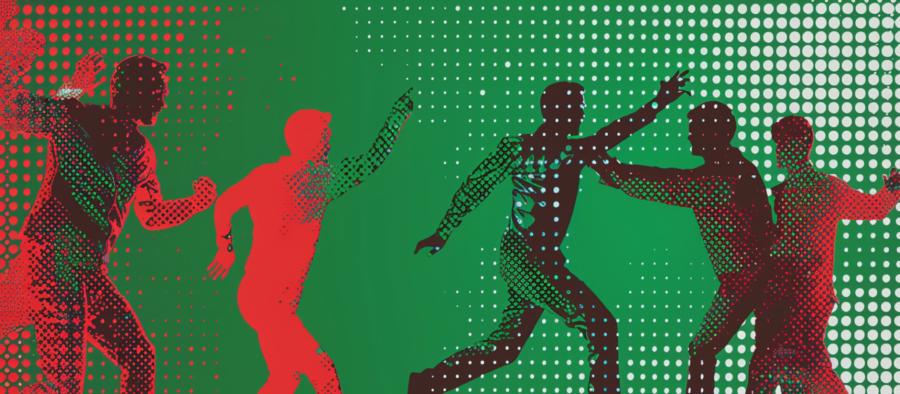Mental Agility: It’s a Team Sport
Consider the humble trivia night. On the surface, it’s a room full of people wracking their brains over questions like “Which planet is closest to the sun?” But dig deeper, and you’ll find that it’s not just about who remembers the most useless facts. Trivia nights demand quick thinking, pattern recognition, and the ability to connect the dots—skills that are incredibly useful in any team setting. Plus, when a team collectively arrives at an answer, it creates a shared victory that feels more satisfying than a solo win. It’s like the difference between enjoying a pizza by yourself and sharing it with friends—somehow, it just tastes better.Communication: The Secret Ingredient
In the heat of a trivia competition, clear communication is key. Think about it: there’s nothing quite like the chaos of everyone shouting different answers simultaneously. One person remembers reading a random fact about kangaroos, another insists on the wrong answer with surprising confidence, and suddenly, it’s a glorious mess. However, as the team settles into a rhythm, they learn to filter the noise and focus on the most relevant information.This sharpening of communication skills doesn’t just stay at the trivia table. When teams face real-world challenges, the ability to convey ideas clearly and listen to others is crucial. Trivia and brainteasers serve as a microcosm of the workplace, where clear and concise communication can mean the difference between success and a missed opportunity.
Problem-Solving: More Than Just Guesswork
Now, let’s not forget the true stars of any mental challenge event: the riddles and brainteasers. These aren’t your average, run-of-the-mill puzzles. They require a type of lateral thinking that can push even the most logical minds to the brink. Ever tried to solve a riddle that makes you question the very nature of language? It’s a humbling experience, to say the least.But here’s where it gets interesting—solving these riddles as a team is a whole different ball game. It’s no longer about who can shout the answer first, but rather who can approach the problem from the most creative angle. One person’s perspective might unlock the solution that others hadn’t even considered, showcasing the diverse strengths within the team. This collaborative approach to problem-solving is exactly what’s needed in a work environment where different viewpoints can lead to innovative solutions.
Fun with a Purpose: Building Bonds
Sure, all this talk of brain-bending challenges and communication drills might sound a bit intense, but let’s not forget the most important aspect: it’s supposed to be fun. Yes, fun! There’s something inherently hilarious about watching your colleagues desperately try to remember which country won the World Cup in 1994 or arguing over whether a tomato is a fruit or a vegetable. These moments of laughter and camaraderie can lighten the mood and create a more relaxed atmosphere, making it easier for team members to connect on a personal level.When people are laughing and enjoying themselves, they’re more likely to let their guard down and share a bit of who they are outside of their work persona. This fosters trust and strengthens the relationships that are crucial to effective teamwork. So, while it might look like just another game, there’s a lot more happening beneath the surface.
Learning Through Play: Cognitive Benefits
It’s no secret that play is a powerful tool for learning, but when it comes to mental challenges, the benefits go beyond just having a good time. Engaging in activities that test mental agility sharpens cognitive skills, such as memory, concentration, and logical thinking. When teams come together to solve complex puzzles or answer tricky trivia questions, they’re not just flexing their mental muscles—they’re actually strengthening them.Think of it as a gym session for your brain, but instead of lifting weights, you’re lifting the burden of remembering obscure facts or solving a mind-boggling riddle. The mental workout can be just as exhausting as a physical one, but with the added bonus of having a blast along the way. And just like any workout, the more you do it, the stronger you get. Over time, teams that regularly engage in these mental exercises will find that their cognitive skills improve, making them quicker thinkers and more efficient problem solvers.
Creating a Culture of Collaboration
One of the most significant impacts of incorporating mental challenges into team-building activities is the culture it helps create. When teams regularly engage in these fun and mentally stimulating exercises, it fosters an environment where collaboration is second nature. People become more comfortable sharing ideas, offering solutions, and even admitting when they don’t have all the answers—which is a crucial part of effective teamwork.This culture of collaboration isn’t just about getting along; it’s about creating a space where innovation can thrive. When team members feel valued and respected, they’re more likely to take risks, think outside the box, and contribute their best ideas. And all of this stems from something as simple as coming together to tackle a challenging puzzle or trivia question. It’s proof that sometimes, the most effective strategies for building strong teams are the ones that don’t feel like work at all.
Tying the Loose Ends Together
At the end of the day, the true value of mental challenges lies not just in the skills they develop but in the bonds they create. Whether it’s through the shared victory of a trivia win or the collective sigh of relief when a riddle is finally solved, these activities bring teams closer together in ways that traditional team-building exercises often can’t.So the next time you’re looking to boost your team’s dynamics, consider skipping the trust falls and ropes courses. Instead, grab a set of trivia questions or a book of brainteasers and watch as your team’s communication, problem-solving skills, and overall camaraderie reach new heights—all while having a great time in the process. Because when it comes down to it, who says building a stronger team can’t be fun?
Article kindly provided by groupdynamix.com

